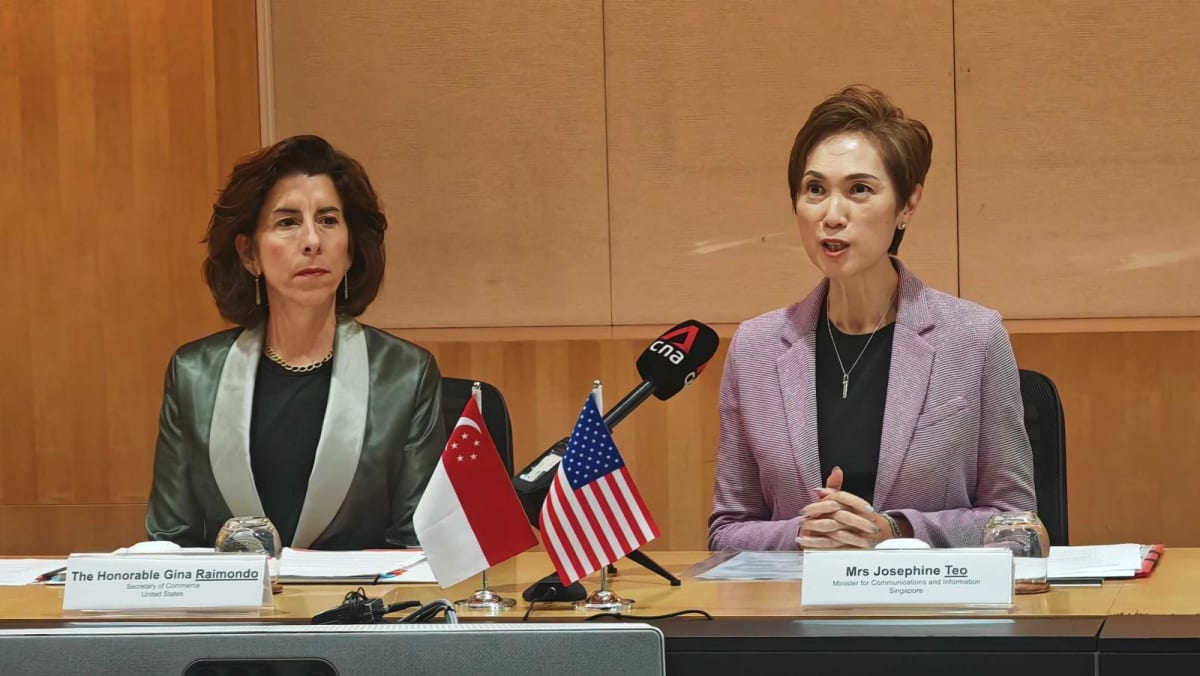Tech
Singapore, US announce new AI Talent Bridge programme focused on tech opportunities for women

Mrs Teo noted that the green data centre roadmap, launched on May 30 to chart sustainable growth while adding to data centre capacity, will allow for up to 35 per cent expansion of capacity.
Both countries believe that the rise of AI, including generative AI, will bring new opportunities, including the ability to enhance economic and social welfare, and to support more competitive and environmentally sustainable economic growth.
“Our two governments recognise the tremendous potential of AI for good, including for the advancement of environmental sustainability, education, and healthcare,” added the factsheet.
Nearly 6,000 US companies currently operate in Singapore, with bilateral trade supporting close to 250,000 jobs across the US.
“Technology spending in Singapore reached S$22 billion, the equivalent of US$16.3 billion in 2023, with the United States being the top foreign investor,” the factsheet stated.
Existing and committed capital investments in AI by US companies over the next few years, in partnership with Singapore, exceed S$50 billion. This is a “very strong stamp of approval” in Singapore’s digital economy, Mrs Teo said.
“We are very clear that it is not only designed to serve the market of 6 million people in Singapore, but the region around us. We are also very mindful that capital investments of this scale do not get approved without robust and hardnosed assessments, with the expectations that these will translate into strong return on investment,” she added.
US companies are also investing in Singapore’s workforce, infrastructure, and research and development (R&D), including through establishing AI Centres of Excellence in line with Singapore’s National AI Strategy (NAIS) 2.0.
As part of NAIS 2.0, launched in December last year, the government aims to more than triple the number of AI practitioners here, to 15,000 over the next three to five years.
Companies from both countries have committed to partnering to raise the AI capabilities of more than 130,000 workers in Singapore.
To tackle the challenges that come with the rapid, global proliferation of AI, both countries have overseen the development of new frameworks to ensure safe use.
“Both sides recognise that the testing and evaluation of AI technologies should take into account trustworthiness considerations that can support the objectives of AI governance frameworks,” the factsheet stated.
Ms Raimondo noted in her speech that the key to the adoption of AI was trust, which comes from safety and standards.
“We are committed to the aligning of these standards and ways to mitigate risk which will lead to greater trust by users, which will lead to more adoption,” she said.
Singapore launched a new governance framework for generative AI last week, highlighting nine areas where governance of the technology can be strengthened.
The US Department of Commerce and MCI will continue to cooperate in this area to boost AI competitiveness for both countries and advance the work on AI safety.










